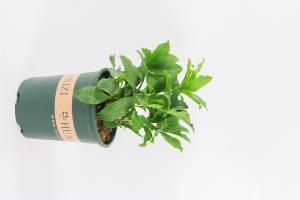Will Pool Water Harm Plants?
Swimming pools can add value, beauty, and fun to a home, but pool owners often wonder whether the water chemicals and chlorinated water will harm plants. This article explores the effects of pool water on a variety of plants and offers some tips for keeping your plants healthy and attractive.
The Effects of Chlorine on Plants
Chlorine is an essential chemical for keeping swimming pools clean and safe for swimming. However, the high levels of chlorine in pool water can cause damage to plants. Chlorine can burn plant leaves, roots, and stems, causing them to wilt, turn brown, or even die. Some plants, such as tomatoes and cucumbers, are particularly sensitive to chlorine and can be severely affected by even small amounts of pool water exposure.
The Effects of Saltwater Pools on Plants
Saltwater pools have become increasingly popular in recent years because they offer a more natural and eco-friendly alternative to traditional chlorine pools. However, saltwater pool water can also harm plants if not carefully managed. The high salt content in pool water can cause plant roots to dehydrate and can also lead to an accumulation of salt in the soil, which can damage plant growth.
How to Protect Your Plants from Pool Water
If you have a pool and want to keep your plants healthy, here are some tips to consider:
Water your plants regularly and deeply to flush out any accumulated chlorine or salt.
Plant your gardens at least five feet away from the pool to minimize exposure to pool water splashes and overspray.
Cover your plants with plastic or cloth to protect them from direct exposure to pool water. Alternatively, you can set up a barrier between the pool and the plants, such as a fence or hedge.
Use a dechlorinating agent such as sodium thiosulfate to neutralize chlorine before using pool water on your plants.
Choose plants that are less sensitive to pool water. Some plants, such as succulents, cacti, and ornamental grasses, are more resistant to the effects of chlorine and salt.
Conclusion
In conclusion, pool water can harm plants if not managed properly. However, with some careful planning and effective plant care techniques, pool owners can enjoy both their pools and their gardens without having to worry about harming their plants. By following the tips outlined in this article, your plants can thrive and add beauty to your outdoor living space.

 how many times do yo...
how many times do yo... how many planted tre...
how many planted tre... how many pine trees ...
how many pine trees ... how many pecan trees...
how many pecan trees... how many plants comp...
how many plants comp... how many plants can ...
how many plants can ... how many plants and ...
how many plants and ... how many pepper plan...
how many pepper plan...































